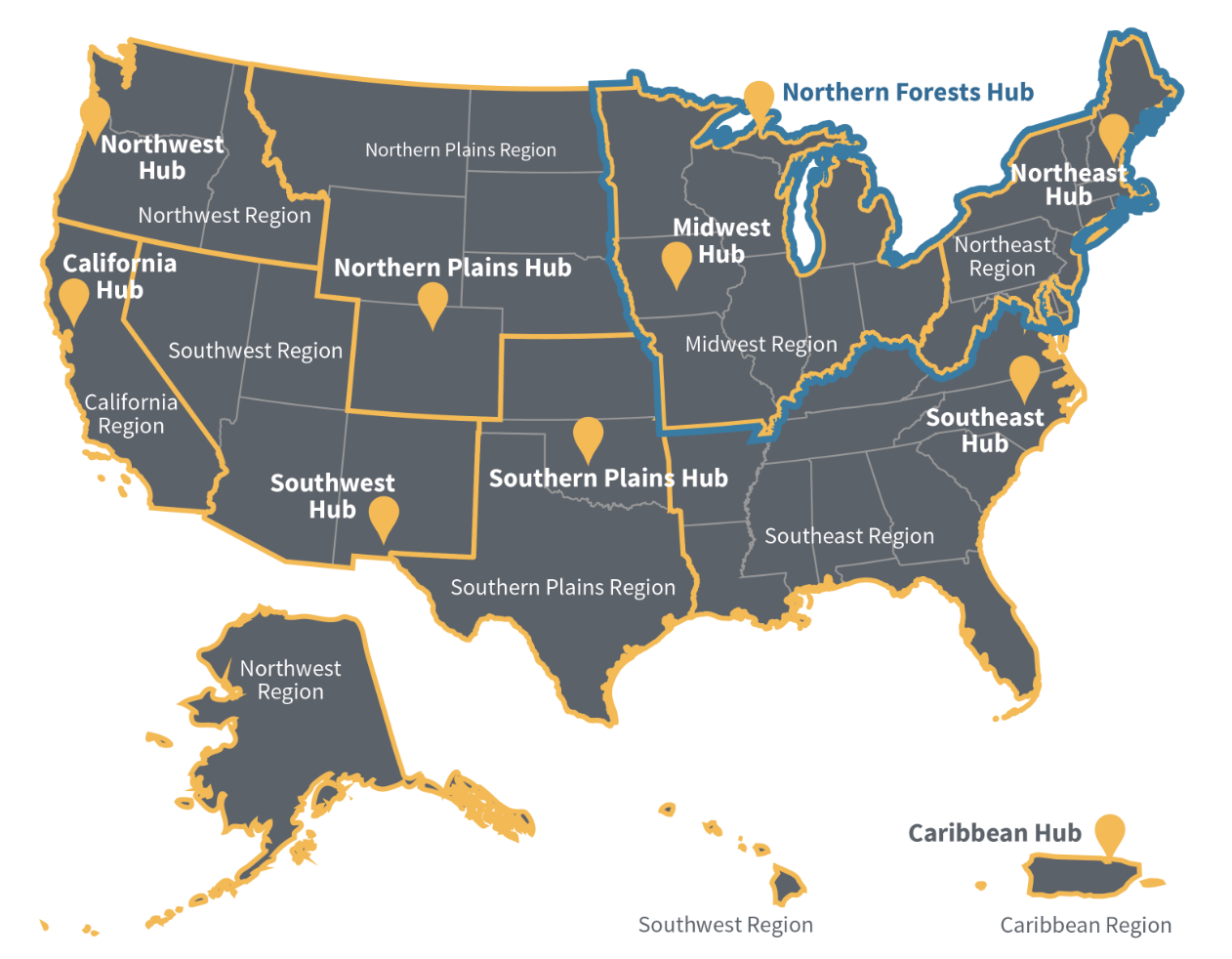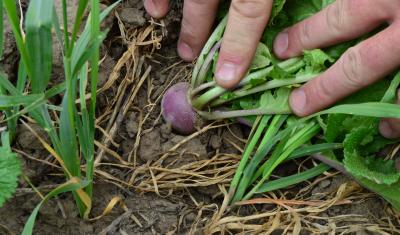Over the past ten years the Climate Hubs have built trust by working across the USDA and with partners to support climate-informed decisions for robust agriculture, healthy forests, and resilient communities. The USDA Climate Hubs continue to expand upon their priorities: a better understanding of the full range of potential climate change impacts; accelerating development of science-based solutions; informing deployment of adaptation strategies; and building tools for farmers, ranchers, and foresters to understand how to implement climate-informed and nature-based solutions.

10 years of USDA Climate Hubs
Empowering land managers to build a climate-resilient future
USDA Press Release Leer en español
Stories from Our First 10 years
This is a collection of stories from Climate Hub partners and employees that highlight a few of the significant ways the Climate Hubs have provided support to the forestry and agriculture communities over the past decade.
Drought Learning Network Brings Resource Managers Together
Reforestation Focuses on Seeds Adapted to Future Climate
Highlights from the Past 10 Years
-
Farm Planning Tool creates a spatial report about geophysical characteristics, future climate scenarios and more

This tool displays a summary of spatial information on soils, climate, hydrology, and topography for farm or forest areas. The data included in this application was provided by each government agency that created or…









